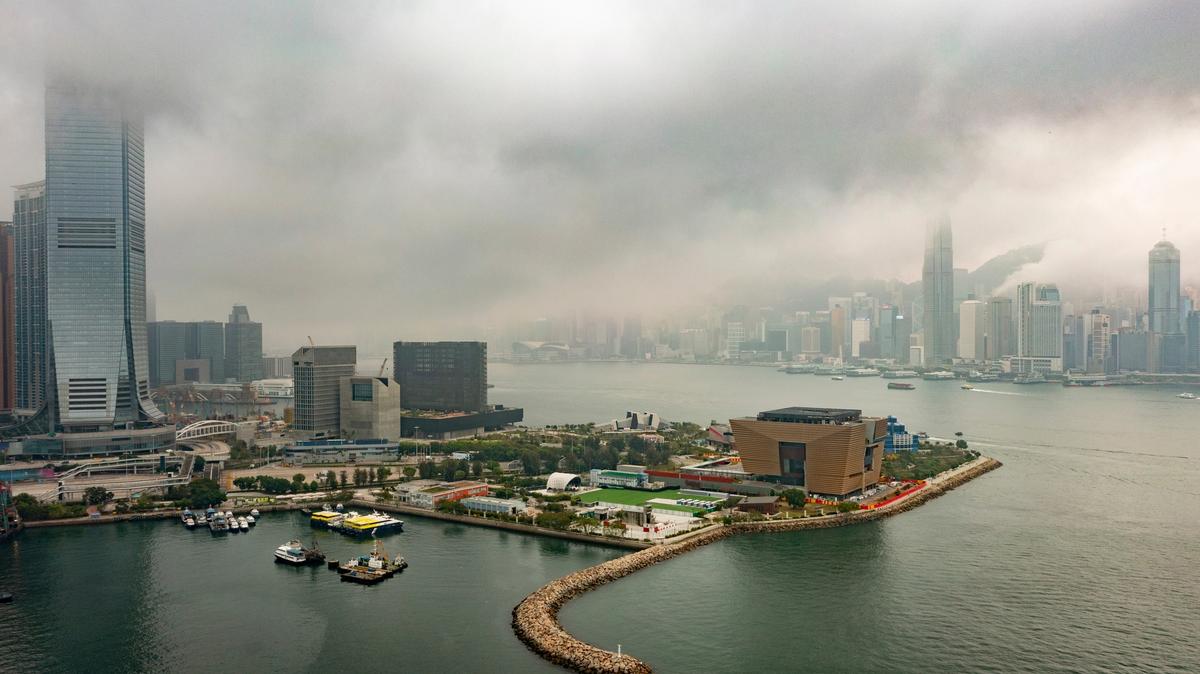The West Kowloon Cultural District, an arts hub located on Hong Kong’s Kowloon peninsula, has been thrown a funding lifeline after the region’s executive council—akin to a government cabinet—approved plans to secure much-needed additional funding through the sale of residential developments on the site.
Spanning 40 hectares alongside Victoria Harbour, the cultural district hosts the M+ museum of contemporary visual culture, the Hong Kong Palace Museum and two performing arts venues—the Xiqu Centre and Freespace. The Lyric Theatre Complex is meanwhile under construction and scheduled to open in 2026. The museums and performing arts venues together welcomed more than 4.4 million visitors during 2023-24, a WKCDA statement says.
The move was welcomed by Henry Tang Ying-yen, the chairman of the West Kowloon Cultural Authority (WKCDA), which manages the culture district. He says in a statement that the new arrangement is “currently the best method to address the authority’s cashflow issues without increasing the financial burden of the HKSAR [Hong Kong special administrative region] government”.
Earlier this year senior officials warned that the district is facing major financial challenges that could force it to halt future programming. Crucially Betty Fung, the chief executive of the WKCDA, told local media last summer that the Hong Kong government’s 2008 endowment of HK$21.6bn (US$2.8bn) was projected to run out by March 2025.
The government previously threw WKCDA a lifeline in 2016, with an “enhanced financial arrangement” allowing it to tender out part of the site to private developers of hotels, offices and residential units. This was to support the district in generating additional rental income under a “build, operate, transfer (BOT)” structure. But the timing of the tender during the pandemic, alongside a weakened property market, left “developers with a diminished appetite for investment”, according to the South China Morning Post.
The newly approved plan hinges on WKCDA’s right to sell properties on the West Kowloon site, whereas under previous government restrictions the authority could only rent out properties.
“Under the relaxed arrangement, residential developments in Zone 2 of the district are no longer confined to BOT; the sale of the residential developments will be permitted and the incomes received from the tenders awarded to private developers will enable WKCDA to meet its operational deficit and capital expenses for about ten years,” WKCDA says in a statement.
The statement adds that the arrangements will also “help realise the authority’s vision to strengthen Hong Kong’s strategic position as an East-meets-West centre for international cultural exchange.”
According to a recent impact study, WKCDA has contributed approximately HK$6.8bn to Hong Kong’s total gross domestic product.


